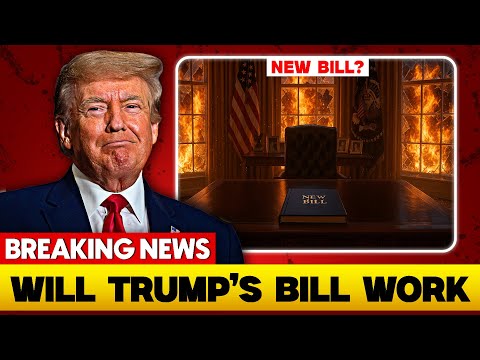
The recently passed “One Big Beautiful Bill,” championed by former President Trump, has ignited a firestorm of debate. This controversial legislation, squeezed through Congress by the narrowest of margins, promises significant tax cuts while simultaneously slashing vital social programs and infusing billions into border security. But is this truly a beautiful bill, or a ticking time bomb for the US economy? Let’s delve into the details and analyze the potential ramifications.
### A Closer Look at the Legislation: Winners and Losers
The bill’s core tenets are threefold: substantial tax cuts extending previous reductions; drastic cuts to Medicaid and food aid programs; and a massive injection of funds into bolstering border security. While supporters tout the tax cuts as a boon to economic growth, critics argue that the cuts disproportionately benefit the wealthy while exacerbating existing inequalities.
The cuts to Medicaid and food aid, crucial lifelines for millions of low-income Americans, are particularly concerning. These reductions could leave vulnerable families struggling to afford basic necessities like healthcare and food, potentially leading to increased poverty and health crises. The long-term implications for public health and social welfare are deeply troubling.
Meanwhile, the billions allocated to border security represent a significant commitment to a specific policy area. While proponents argue this strengthens national security, opponents question the efficiency and effectiveness of such spending, arguing that it diverts resources from other critical needs.
### The $3.3 Trillion Price Tag: A Looming Debt Crisis?
The bill’s staggering $3.3 trillion price tag is perhaps its most alarming aspect. This immense sum adds significantly to the already mountainous national debt, raising serious concerns about the long-term financial stability of the United States. The implications are far-reaching: increased interest payments, potential credit rating downgrades, and the possibility of future austerity measures are all real threats.
Critics argue that this fiscal recklessness jeopardizes future generations, burdening them with the debt incurred by current policy decisions. The lack of a comprehensive plan to offset the cost of these tax cuts and spending increases further exacerbates the problem.
### What Comes Next? Uncertainty and Unanswered Questions
The passage of this bill leaves the nation facing significant uncertainty. The long-term economic consequences remain unclear, with economists divided on the potential impact. Will the tax cuts stimulate the economy as proponents claim, or will they further exacerbate income inequality and fuel inflation? Will the cuts to social programs lead to a public health crisis, or will they be offset by other measures?
The answers to these questions will unfold over time, but one thing is certain: the “One Big Beautiful Bill” is a bold gamble with potentially devastating consequences. The coming years will be crucial in assessing the true cost of this controversial legislation and its lasting impact on the American people. Continued scrutiny and informed public debate are vital to navigate the uncertain path ahead. Stay informed and stay engaged.
